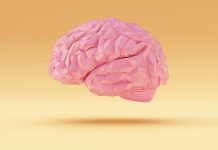
Have you ever felt your heart race when you bumped into someone you have a crush on?
In such situations, we all have to decide whether to approach the person or avoid potential embarrassment by ignoring them.
However, how we make this decision might be influenced by our anxiety levels, and it’s all happening inside our brains.
The Brain’s Balancing Act
When faced with socially challenging situations, such as deciding whether to approach someone we like, our brains weigh the potential threat against the possible reward.
While non-anxious individuals rely on their prefrontal cortex, a part of the brain associated with complex decision-making, researchers from the Donders Institute of Radboud University found that socially anxious people tap into a different section of the forebrain.
Bob Bramson, one of the researchers, explains that while non-anxious individuals can easily set aside their emotions to approach someone they are interested in, anxious individuals find it challenging.
“It’s more difficult for them to choose alternative behavior, so they avoid social situations more often,” Bramson states.
What Brain Scans Reveal
To understand how the brain functions in these scenarios, Bramson and Sjoerd Meijer conducted a study involving brain scans.
Participants, both anxious and non-anxious, were shown a mix of happy and angry faces. Initially, they were asked to move a joystick towards the happy face and away from the angry one.
Later, they were instructed to do the opposite. The task was designed to test their ability to control their natural inclination to steer clear of negative situations.
Though both groups performed the task effectively, the brain scans revealed intriguing differences.
Non-anxious individuals had a clear signal from the front of their prefrontal cortex to the motor cortex, the part responsible for bodily actions. In contrast, anxious individuals relied on a less efficient section of their forebrain.
Another interesting discovery was that the “ideal” section of the brain seems to become overactive in anxious people.
This could be why they find it tough to choose different actions and tend to avoid social scenarios, reinforcing their belief that such situations are more negative than they really are.
Implications for Treatment
This research provides novel insights into how anxiety can shape our behavior and decision-making.
By highlighting that the brains of anxious individuals function differently in controlling emotional behavior, it paves the way for potential treatments tailored to these unique neural patterns.
In conclusion, understanding the brain’s intricacies can help us better grasp the challenges anxious individuals face and hopefully lead to more effective interventions in the future.
If you care about mental health, please read studies about 6 foods you can eat to improve mental health, and B vitamins could help prevent depression and anxiety.
For more information about mental health, please see recent studies about how dairy foods may influence depression risk, and results showing Omega-3 fats may help reduce depression.
The study was published in Nature Communications.
Follow us on Twitter for more articles about this topic.
Copyright © 2023 Knowridge Science Report. All rights reserved.



